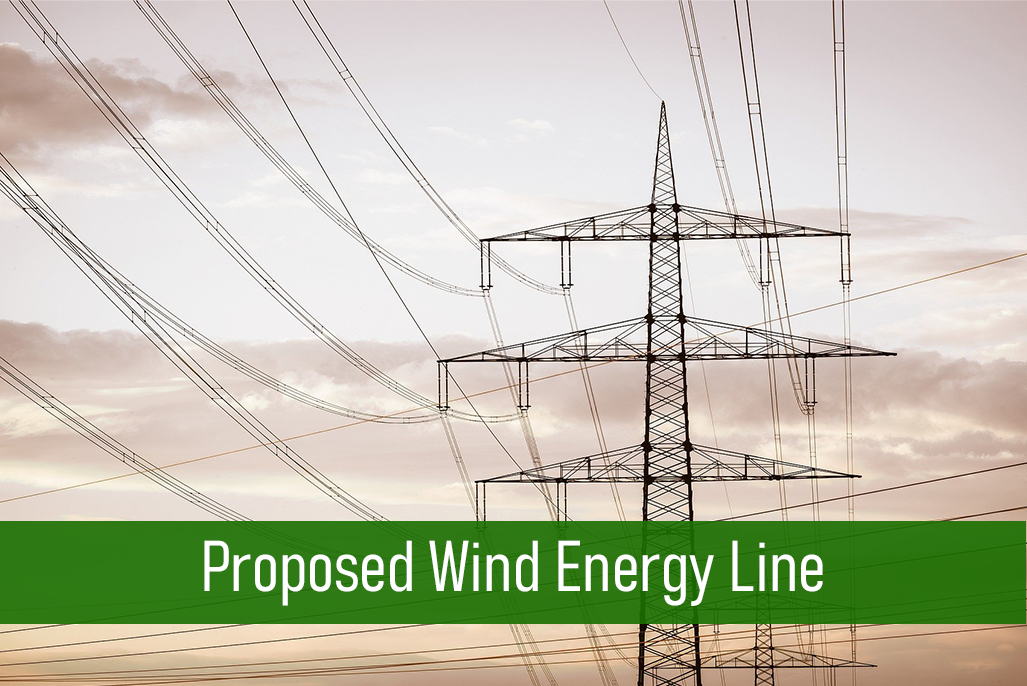ENERGY
Proposed wind energy high-voltage line, which would pass through Central Illinois, faces uncertain future. The proposed “Grain Belt Express” transmission line would be an electricity trunk line similar to the lines already familiar to Illinoisans that radiate outward from nuclear, gas-fired, and coal-fired power plants. It has been mapped out to be 800 miles long, carrying electricity generated by windmills from the Kansas Great Plains to the eastern Midwest, terminating in Indiana. Its proposed route includes many miles of high-tension line in Central Illinois. As with other high-tension lines, the belt and towers would be built on private property throughout almost all its length.
Many Illinoisans do not want new high-tension “green energy” electricity lines built on or near their properties. Various stories and questions have been reported and asked about what these lines may do as they run and operate. Furthermore, an entirely separate question set has been asked about the financing package behind “Grain Belt Express,” and whether its developers have lined up the financing needed to construct the line. Under Illinois law, developers of a high-tension line that will cross private properties have to prove up their financing and provide detailed data about their customer base, prior to construction. Among other reasons, this is so that property owners are not potentially encumbered with an unfinished construction project on their properties.
The 5th District Illinois appellate court issued a unanimous decision last week in the case entitled “Concerned Citizens & Property Owners v. Illinois Commerce Commission,” stating that the proposed “Grain Belt Express” has not yet, as of August 2024, proved up its financing or future customer base at the level required to gain the right to build out over private Illinois properties. Unless this decision is reversed on appeal, this decision could halt further planning and construction of the line. Nothing in the appellate decision touched directly on the question of the consumer safety of high-tension lines, or the desirability of “green energy”; the decision concentrated on the financing elements of Illinois electricity construction law.
The Illinois Farm Bureau (IFB) was one of the plaintiffs in the so-far successful “Grain Belt Express” lawsuit. The appellate decision was published on Friday, August 16.
Rep. Coffey Tours Kincaid Power Plant to Discuss Illinois Energy
“Illinois will soon see an energy crisis if we continue to shut-down coal powered facilities with no clear solution to replace energy sources,” said Rep. Coffey. “Our residents and businesses need affordable energy rates, and we need to bring legislation to the House floor to ensure costs don’t skyrocket out of control. The demand for energy is rising and rather than shutting down coal plants, we need sound policies in place, so job creators and families have low-cost energy. I will continue to fight for reliable and affordable energy.” Read the full press release here.
